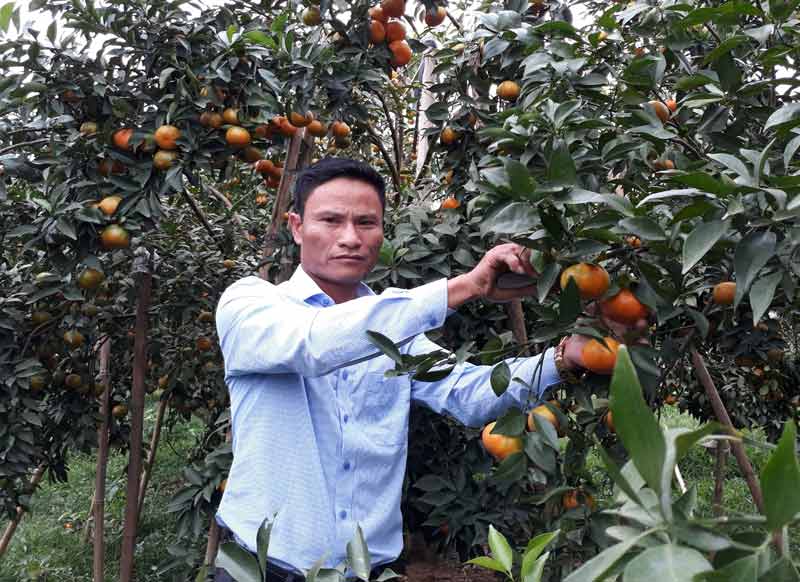



Tran Van
Nghi, a farmer in Thanh Ha town (Lac Thuy district), has succeeded in orange
cultivation.
He started with 500 orange trees and after 3
years, his trees started to bear fruits. Having found that his oranges had
savory taste and nice aroma, with quality similar to oranges from well-known
regions, he boldly expanded his orange growing area. He meticulously piled up
whatever capital he had left to increase the area and number of orange trees.
Starting from a few thousands of aquare meters, Nghi now owns over 10 hectares
with 8,000 orange trees, mostly "yellow-flesh” oranges, V2 oranges and Canh
oranges. His orange garden is equipped with fences, underground irrigation
systems, a watch-tent and labourers who regularly take care of the trees.
To achieve his successes today, Nghi had to put
in a lot of efforts to prepare the soil, learn the skills required to grow the
trees, fertilize them and prune tree branches so that the oranges could have
the top quality. Sharing his experience in growing oranges after 10 years, Nghi
said: "It is always like that when it comes to growing trees, if you do not know
how to take care of them then the quality of the fruits will not be good. The
same goes for orange trees, even the way you harvest the fruits matters as if
it is not the correct technique, the next harvest may give poor fruits. After
you harvest, if you do not prune branches, hoe the soil at the tree roots and
fertilize the soil at the right time then the next harvest will give fruits of
poor quality. You need to go through it first hand to gain this experience.”
At first, as he had not fully understood all of
the techniques and skills required for planting, there were many times where
Nghi’s garden was attacked by pests, affecting the quality as well as the
quantity of the fruits. He said: "Many times I got tired, seeing my orange
garden falling ill and lamenting all the wasted labor and funds that our family
has put into the oranges. But I did not give up because of it, after asking and
studying through newspapers and the Internet, I found a way to prevent my trees
from falling ill. Because of that, for many years now I have not had a problem
with pests”.
Thanks to this, his oranges are famous across
the region due to their savory flavor as well as their high quality. Traders
come from other regions across the country flocked to buy his oranges. Although
he does not advertise it but his reputation for the oranges’ quality is always
assured. The average income from his garden, after deducting maintenance costs,
reach around 1 billion VND per year, creating stable jobs for over 15
labourers./.